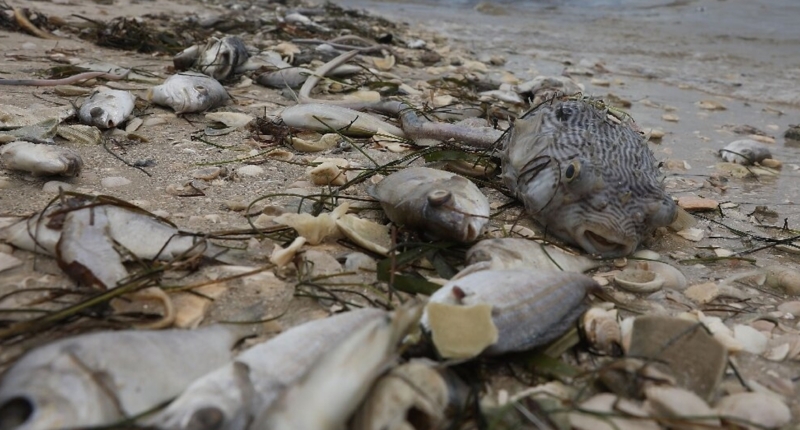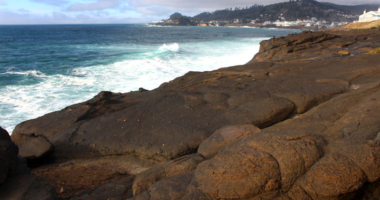The harmful algae bloom known as red tide has threatened Florida’s Gulf Coast, causing many beaches, like Lido Key Beach, to be littered with dead fish. The toxic algae, Karenia brevis, can cause respiratory problems and kill marine life, posing a threat to Florida’s tourism industry. Scientists at Mote Marine Laboratory have been working on ways to reduce the impact of red tide by testing different methods in seawater tanks that simulate the Gulf of Mexico ecosystem. However, Dr. Michael Crosby warns that red tide can never be completely eradicated since it occurs naturally. Red tide usually occurs about 65 kilometers off Florida’s west coast and may approach the coastline following ocean currents. Hurricane Ian triggered the current red tide outbreak, pushing existing red tide to the surface. While humans’ land-based inputs of nutrients can exacerbate red tide, it would still occur even without human activity.

Lido Key Beach, a picturesque location with clear turquoise water, white sand, and bright sun, would make an ideal postcard of Florida beaches if not for the toxic algae bloom. The toxic algae bloom, commonly known as red tide, has been plaguing Florida’s Gulf Coast and has left many beaches littered with dead fish. Although the bloom usually hits the Gulf Coast in the summer, this year it has appeared in spring, a time when many American families visit the Sunshine State for school break, posing a threat to Florida’s tourism industry.
The harmful algae, called Karenia brevis, can cause respiratory problems in some people and kill marine life, and emits a decaying, sulfurous smell. Its effects have been felt by many visitors and employees in Florida’s tourism sector, with a lot of cancellations and people falling ill. The toxic algae gave one employee migraines for five days, and an 80-year-old tourist walking along the shoreline experienced a sore throat, coughing, and trouble with his eyes and sinuses.
Scientists at the Mote Marine Laboratory, situated 30 miles from Lido Key Beach, have been working since 2020 to reduce the impact of red tide. The aim of their research is to kill the algae, denature the toxin, and reduce the impact on non-target species. They cultivate specimens of Karenia brevis in large seawater tanks that simulate the Gulf of Mexico ecosystem and test different substances against it.
Florida’s tourism sector is in jeopardy due to the red tide outbreak. It is imperative that scientists find a solution to this problem soon to avoid further harm to the state’s marine life and tourism industry.
Scientists at Mote Marine Laboratory have identified 12 methods to reduce the impact of red tide, a harmful algae bloom that threatens the coast of Florida. The research aims to test the methods in the ocean over the next two years. However, Dr. Michael Crosby, President and CEO of the laboratory, warns that red tide can never be completely eradicated since it occurs naturally, unlike other harmful algae that result from human activity.
Red tide usually occurs about 65 kilometers off Florida’s west coast, and it may approach the coastline following ocean currents. Hurricane Ian, which hit Florida in September, triggered the current red tide outbreak by pushing existing red tide to the surface. Once the toxic algae reaches the coast, it proliferates when it comes into contact with water rich in nutrients, naturally or through agricultural activity.
While humans’ land-based inputs of nutrients can exacerbate red tide, Dr. Crosby states that even without human activity, red tide would still occur. The toxic algae has been present in Florida for hundreds of years, and its effects have been felt by many people, such as Lido Beach Resort’s employee, Jeff Napier, who resignedly states that visitors must be aware of its existence.
Don’t miss interesting posts on Famousbio








